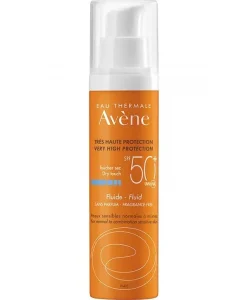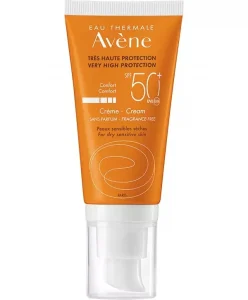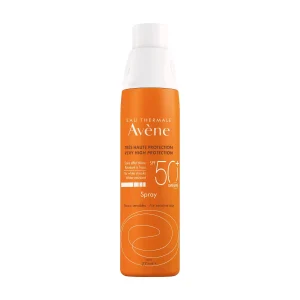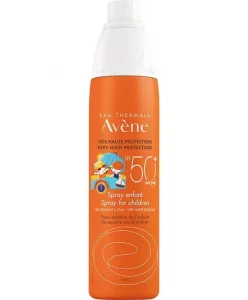
If you have sensitive skin, you probably already know that your skin can be irritated by the sun’s ultraviolet (UV) rays. Many sunscreens also irritate your skin. Some people with very sensitive skin may be allergic to sunscreens, but it’s usually a reaction to the ingredients in the sunscreen. This results in burning, stinging and red, itchy bumps. That’s why The Dermo Lab reached out to dermatologist Dr. Liana Nassour to identify the best sun protection for sensitive skin to protect the skin while limiting the risk of irritation.
What is sensitive skin?
Sensitive skin is a common condition that means your skin is more prone to reactions such as redness and itching. Most people with sensitive skin notice occasional or frequent itching, burning, and stinging on certain parts of their skin.
The signs of sensitive skin come from the breakdown of your skin’s protective barrier. This can be caused by the environment, dehydration, or an underlying condition. These signs include:
- Rough and scaly patches
- Wrinkled and rough texture
- Redness
- Swelling
- Open sores or yellow scabs on the skin
- Peeling skin
What to look for in sunscreen if you have sensitive skin
As a reminder, there are two types of sunscreens: chemical and mineral (or physical) formulas. Chemical sunscreens work by absorbing UV rays, as opposed to physical sunscreens that deflect light.
If you have sensitive skin, it’s best to use physical sunscreen. According to Dr. Liana Nassour, people with sensitive skin should opt for physical sunscreens because chemical sunscreens can cause allergic reactions.
Physical sunscreens are safer because they stay on the surface of the skin and are not absorbed by the body, as chemical sunscreens are.
What to avoid in sunscreens if you have sensitive skin
When it comes to ingredients to watch out for, avoid oxybenzone and PABA (para-aminobenzoic acid). Both of these chemicals are known to cause allergic reactions and are potential hormone disruptors. You’ll also want to avoid sunscreens that contain fragrances, as they can also irritate sensitive skin.
Read on to find out the best sun protection cream for sensitive skin!
How to choose the best sun protection for sensitive skin?
1- When in doubt, choose a mineral sunscreen.
It is recommended for people with sensitive skin to use mineral or physical sunscreen rather than products containing chemical filters (oxybenzone, avobenzone, octisalate, and homosalate). Instead, look for zinc oxide or titanium dioxide on the label, which protects your skin by providing a physical barrier between the skin and the sun’s harmful rays.
2- Avoid fragrances.
Some sunscreens may be formulated with certain fragrances to provide a pleasant scent, but this can cause irritation, redness, and sensitivity in some people.
3- Go oil-free.
Having acne-prone skin is no excuse for skipping your sunscreen, as blemishes and dark marks left after a breakout will only get worse and more visible with sun exposure. Instead, try an oil-free, non-comedogenic SPF, which means its formula won’t clog pores. Pay attention to consistency, as liquid and gel-like formulas are often lighter on oily skin.
4- Look for moisturizing products.
If you are on the opposite end of the spectrum and have dry, eczema-prone skin, let your SPF do double duty. Some of the sunscreens on the market that target sensitive skin contain ingredients like colloidal oatmeal or ceramides to provide the same type of benefits as traditional moisturizers while protecting you from the sun.
Finally, if you know your skin is sensitive, always test a bit of the sunscreen you’d like to try on another part of your body before applying it to your entire face. Take a small amount and rub it on your inner arm, for example. If you do not react after a day or two, you can try it. An allergy patch test can also be done at your dermatologist’s office if you think you’re having a consistent reaction to an ingredient you can’t identify on your own.
Ready to protect your sensitive skin? Whatever you choose, make sure your product has a broad-spectrum SPF of at least 30 for optimal protection.
Check out the following sunscreens, all of which can be a good place to start if you’re constantly irritated by SPF. All Eau Thermale Avène products are designed for sensitive skin and have minimalist formulations to minimize the risk of skin irritation and allergic reactions and do not contain preservatives.
For the face:
For normal to combination skin:
Eau Thermale Avène Very High Protection Fluid SPF 50+
For dry skin:
Eau Thermale Avène Very High Protection Cream SPF50+
For the body:
Eau Thermale Avène High Sun Protection Spray SPF 50+
For children’s sensitive skin:
Eau Thermale Avène Spray for Children SPF 50+
How to protect yourself from tanning?
Here are 5 tips to protect yourself from sun damage and prevent tanning:
- Avoid the sun at its peak
The first thing you should do is avoid going outside when the sun is at its peak, usually between 11 am and 4 pm. This is when the sun is hottest and the damage is greatest. But this exact time can change depending on where you live in the world. Spend as little time as possible outside during these hours, regardless of the weather or temperature.
- When you are outside, walk on the shady side!
Don’t stay in the sun for long periods. If possible, find a place where you can protect yourself from the sun to reduce sun damage to your skin when you are outside. If you’re at the beach, try to find a shady spot, as the water and sand reflect the sun’s rays, increasing your tan.
- Cover up, cover up and cover up again
Wear clothing that protects your skin from harsh UV rays. Cover your hands and legs completely when you go out in the sun. No matter what the weather or what you’re doing, cover up! Wear long-sleeved clothing to minimize sun exposure.
- Apply sunscreen to protect your skin
Apply sunscreen to all exposed areas of skin for about 20 minutes before going outside, even on cloudy days. If you are exposed to the sun for long hours, reapply your sunscreen every 3 to 4 hours. Any good sunscreen with an SPF over 30 will protect you.
- Wear UV-protected sunglasses
The skin under your eyes is more sensitive than other skin on your face. So, we recommend wearing UV-protected sunglasses when you go out.
Last Updated on March 13, 2024













